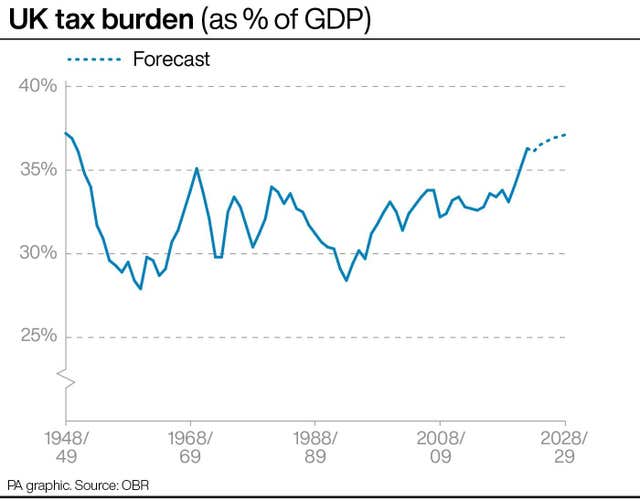
Jeremy Hunt has left the door open for extra pre-election giveaways after delivering one other 2p reduce in nationwide insurance coverage within the Funds.
The Chancellor spent round £10 billion on slicing nationwide insurance coverage, described by commentators as a transfer to “sweeten the Authorities’s electoral pitch” on high of an analogous reduce in November.
However talking after his announcement, Mr Hunt urged extra might be on the best way, telling Sky Information the Funds was “completely not” the final throw of the cube earlier than the election, anticipated to happen within the autumn.
The prospect of one other “fiscal occasion” earlier than the election might give hope to these Conservative backbenchers who want the Chancellor had gone additional.
They embrace Suella Braverman, the previous residence secretary, who advised the Commons she would have most popular to see an revenue tax reduce that might assist pensioners in addition to employees.
However the Chancellor has little room to play with. The Workplace for Funds Accountability (OBR) stated Wednesday’s bulletins left lower than £9 billion of headroom in opposition to Mr Hunt’s debt goal, a lot of which might be worn out if the freeze on gasoline obligation is prolonged because it has been yearly since 2010.
His plans additionally depend on tight spending restrictions after the election, which commentators have urged contain spending cuts that departments will wrestle to implement.
Questions on what the Chancellor’s plans imply for spending cuts and tax rises after the election might come to the fore on Thursday, when consultants from the Institute for Fiscal Research (IFS) and the Decision Basis give their verdicts on the Funds.
Each revered suppose tanks have already stated the Funds leaves the “huge image” largely unchanged, with dwelling requirements squeezed and general taxation going up due to extra individuals being dragged into increased tax bands.

Paul Johnson, director of the IFS, stated the Chancellor had used “smoke and mirrors”, whereas the Decision Basis’s Torsten Bell stated Wednesday’s tax cuts relied on “the prospect of a bitter £19 billion of post-election tax rises, and the fiscal fiction that one other £19 billion of cuts to public providers could be delivered”.
Neither the Conservatives nor Labour have been eager to handle the implications of present post-election spending plans, though a Labour spokesman acknowledged the get together will face a troublesome inheritance if it wins the election.
The get together has stated it should take a look at the Authorities’s plans and “adapt” its personal proposals after the Chancellor’s determination to undertake the Labour coverage of scrapping non-dom tax standing.
On Thursday, the opposition is to give attention to the general image on tax, saying the Funds meant the typical household can be £870 worse off by 2028/29, largely on account of tax thresholds being frozen.
Labour stated the Chancellor’s plans will solely pay again £5 for each further £10 individuals pay in tax, whereas one other 3.7 million individuals face being dragged into paying revenue tax due to the edge freeze.
Rachel Reeves, the shadow chancellor, stated: “It’s only a cynical gimmick from a weak Prime Minister who’s desperately attempting to cling on to energy.”